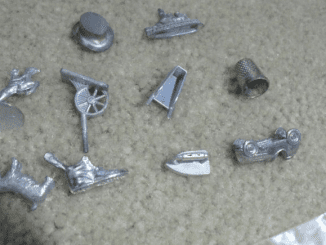Peeling potatoes without washing them first is a habit for many home cooks—after all, why bother if the skin’s coming off anyway? But if your mother-in-law insists that washing them is necessary, you may be wondering what all the fuss is about. Does it really matter if you wash potatoes before peeling them? Let’s dive deep into the science, the risks, and the cultural quirks that might change the way you look at this seemingly simple step.

Why Do We Wash Vegetables in the First Place?
Washing vegetables before cooking is more than just a tradition; it’s a practice rooted in hygiene and food safety. Dirt, bacteria, and pesticide residues are often present on produce, and a good rinse helps remove these contaminants. Even if you’re planning to peel the potatoes, washing them can reduce the risk of ingesting harmful substances and improve the overall cleanliness of your kitchen.
Think of it as an extra layer of protection. You wouldn’t want any unexpected dirt or bacteria from the potato skin to sneak onto your hands, peeler, or cutting board, would you?
What’s Hiding in Potato Skin?
Potatoes grow underground, making their skins prime real estate for dirt, bacteria, and sometimes pesticides. The skin acts as a shield for the flesh, but it also serves as a landing ground for all sorts of debris. During harvest, storage, and transport, potatoes often come into contact with additional contaminants, which can accumulate on their surface.
When you skip washing, these contaminants can transfer to your hands, the peeler, and eventually to the peeled potato itself. Washing potatoes before peeling can eliminate most of these surface contaminants, giving you a cleaner, safer ingredient to work with.
Peeling vs. Washing: What Do Food Safety Experts Recommend?
Food safety experts agree: washing produce, even if you’re going to peel it, is a smart move. Here’s why:
- Contamination Transfer – As you handle the potato, dirt and bacteria on the skin can move to the peeled flesh. This risk increases if you skip washing altogether.
- Cross-Contamination – If contaminants on the potato skin spread to your cutting board, counter, or other foods, they can pose additional health risks.
- Pesticide Residue – While peeling may remove some pesticides, a quick wash helps to rinse off any that may linger on the surface, reducing the overall exposure.
What Are the Risks of Skipping the Wash?
Not washing potatoes before peeling can expose you to several potential risks:
- Foodborne Illness – Bacteria like Salmonella and E. coli can live on the skins of produce. If these bacteria transfer to the potato flesh during peeling, they could make their way into your meal.
- Pesticide Exposure – If potatoes were treated with pesticides, these chemicals can linger on the surface. Peeling may remove some, but washing is an extra safeguard.
- Cross-Contamination – Your kitchen counter, utensils, or hands can pick up bacteria from unwashed potatoes, spreading contaminants to other foods and increasing the risk of illness.

A Closer Look at Tradition: Why Some Families Say “Always Wash”
For many people, the decision to wash or not to wash is rooted in cultural and familial traditions. Different cultures have different practices when it comes to food preparation. In some households, washing produce—even if it’s being peeled—is non-negotiable. This tradition is often passed down from generation to generation as a trusted way to ensure food is clean and safe to eat.
So, if your mother-in-law insists on washing, she may be following a long-standing practice aimed at making meals safer and more wholesome.
Simple Steps for Preparing Potatoes Safely
If you’re convinced that a quick wash is worth the effort, here’s how to make sure your potatoes are clean and safe:
- Rinse Under Cold Running Water – Hold each potato under running water and give it a good rinse. The running water helps dislodge dirt and contaminants from the surface.
- Scrub with a Vegetable Brush – For extra cleanliness, use a vegetable brush to scrub the skin gently. This can remove additional dirt and any tough-to-reach contaminants.
- Dry Before Peeling – After washing, dry the potatoes with a clean towel to prevent any slipping while peeling.
- Peel and Proceed – Once the potatoes are washed and scrubbed, you’re ready to peel them without the risk of transferring contaminants to the flesh.
Taking just a few seconds to wash potatoes before peeling can make a big difference in the safety and cleanliness of your meals.

Is It Really That Big of a Deal?
So, is it worth washing potatoes if you’re just going to peel them anyway? From a safety perspective, the answer is yes. The quick rinse reduces the risk of contamination, pesticide exposure, and cross-contamination in your kitchen. While it may seem like an unnecessary step, especially when time is short, washing potatoes before peeling can add an extra layer of hygiene to your cooking.
In the end, whether you wash or not may come down to personal preference, family habits, or cultural norms. But if food safety is a priority, a quick rinse is well worth the effort.
Final Thoughts: To Wash or Not to Wash?
Washing potatoes before peeling might seem like a small, even trivial, step. However, it plays a key role in keeping your kitchen and food preparation process clean and safe. Dirt, bacteria, and pesticides can cling to the skin of potatoes, and washing helps eliminate these contaminants. While some people skip this step out of habit or time constraints, the benefits of washing—reduced contamination and improved hygiene—make it a smart choice.
So, the next time you’re prepping potatoes, give them a quick rinse. It’s a tiny task that can have a big impact on the safety of your meal. And who knows? You might just impress your mother-in-law with your attention to detail!


